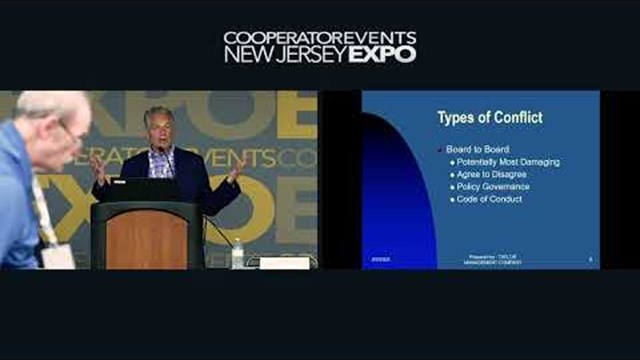
Sometimes in the heat of the moment, when disagreements are at their worst, the possibility of solving a problem without going to court seems remote at best. Arguments may have been brewing for days or weeks with each side becoming more and more entrenched in their own rationale and reasoning. Lines may have been drawn in the sand and threats of litigation hurled with reckless abandon.
In the case of condo and homeowner associations, the path that ends up inside a courtroom could be both an expensive and an unnerving experience. That is where processes like alternative dispute resolution come in. ADR, in fact, is written into law in New Jersey as a viable option to litigation. In ADR, both sides meet with a neutral mediator to try and work the problem out between themselves to a mutually acceptable solution. It’s a relatively simple, confidential process; the mediator listens to both parties and brokers a solution that both sides can hopefully agree upon.
Mediate Versus Litigate
New Jersey’s Condominium Act and the Planned Real Estate Development Full Disclosure Act (PREDFDA) both provide for ADR to be used in housing-related disputes, according to Hubert C. Cutolo, Esq., an attorney and founding partner of the Cutolo Law Firm, LLC in Manalapan.
“In the Condo Act and in the Planned Real Estate Development Act, you have to provide a procedure called alternate dispute resolution, for anything involving housing-related disputes. There was a case that recently came out which said that unit owners were even entitled to ADR for special assessments.”
Under the act, a person other than an officer of the association, a member of the governing board or a unit owner involved in the dispute shall be made available to resolve the dispute. A unit owner may notify the commissioner of the New Jersey Department of Community Affairs if an association does not comply with the provisions of the act. The commissioner has the power to order the association to provide a fair and efficient procedure for the resolution of disputes.
Similarly, the Planned Real Estate Development Full Disclosure Act (PREDFDA), N.J.S.A. 45:22A-44(c), provides that “[t]he association shall provide a fair and efficient procedure of the resolution of disputes between individual unit owners, which shall be readily available as an alternative to litigation.”
Most practitioners acknowledge that ADR is a less costly alternative to litigation. In smaller-type disputes, a board can offer ADR themselves, or can go through a program like the one offered by the New Jersey chapter of the Community Associations Institute (CAI-NJ).
“Condominium and homeowner association folks know that conflict is a pretty common occurrence,” says Jill S. Tanz, who is a professional mediator, based in Chicago. “And most of the time, conflicts that come up can be resolved either by the manager or the board negotiating informally with the groups that are in conflict. You can usually take care of it pretty simply,” she says with ADR—either through arbitration or mediation. The difference between the two, says Tanz, is that “arbitration is normally a binding process where both parties expect a decision. Mediation is non-binding and voluntary.”
CAI-NJ retains a list of trained mediators, who have gone through a course to be certified in dispute resolution. An attorney need not be present and is not required to be retained in CAI-NJ’s ADR program. CAI-NJ members are charged $250 for a single mediation, while the cost to non-members is $400. For more information on the program, contact CAI-NJ at 609-588-0030.
Many things are subject to mediation, says Felicia T. Farber, an attorney and professional mediator, who is based in Hackensack. She is a member of the New Jersey Association of Professional Mediators. The benefits of an alternative dispute resolution mediation process are plentiful and Farber recommends it over litigation whenever possible.
Keeping Things Private
When parties mediate it’s a private and confidential process, and if you litigate there is a chance it will be open to the public. It’s common for the public to have access to court records. “These days people can go online and look up court documents,” says Farber. “What happens in mediation stays in mediation. In addition to the privacy aspects of mediation, another huge benefit is avoiding unexpected outcomes because if you go to litigate a case you’re rolling the dice with the disposition. You don’t know what’s going to happen. No one knows what’s going to happen and if you lose you’re stuck with that decision and face the possibility of having to go through a costly appeal process.”
“Unit owners and board members should always be aware of dispute resolution provisions in the governing documents,” according to attorney Jeffrey H. Itzkowitz, who is with the law offices of Brach Eichler L.L.C. in Roseland. He notes that associations may even have a mandatory arbitration or an internal dispute resolution committee, and the disputing parties may first have to go through that process before a lawsuit is filed.
A mediator does not impose a solution but listens to both sides and assists in arriving at a reasonable solution. Arbitration, on the other hand, is usually a court-imposed, more formal binding solution.
“Studies have been done and it’s better if the parties involved reach their own decisions than if one is imposed on them by a judge,” says Farber. “All parties have to be committed to the mediation process and work in good faith towards a resolution, otherwise the process doesn’t work. There are many types of mediators. I’m a facilitative mediator. I am neutral and I try to help the parties reach their own decisions. I feel that my personal opinion has no place in that.”
Regarding assessments, Cutolo notes that collections under the courts might be subject to ADR. He advises that associations check with their attorneys to revise the initial collection letter that alternate dispute resolution is offered and that the unit owner has 10 days to elect it or not. He says that his firm has changed all of its collection letters going out to members to include that provision.
People, Parking and Pets
Most property managers well know that often at the crux of every community association dispute are people, parking and pets. Managers are on the front lines every day refereeing between the disputing parties, and it’s important to rely on the condo’s rules and regulations. Violation of bylaws is the second most opportunity for trouble brewing between the board and its unit owners.
In fact, just about anything can lead to the need for arbitration or mediation. Violations can range from “grass that’s too high to having a door painted blue that should have been a different shade of blue. It can get down to that level of minutiae but these issues are important to the boards.” There can be bigger issues, too, such as residents running home businesses out of their units in violation of the governing documents. In short, wherever it is possible to have two opinions or sides, it’s possible to have a potentially litigious disagreement. And the best way to avoid that is by pursuing arbitration or mediation.
Unit owners also get upset if they are denied access to official records. If a board is reluctant to share certain details or if an individual unit owner decides to pursue access to files in a contentious manner that makes the board defensive, and that can lead to disagreements and problems.
How It Works
If you happen to be one of two or even three parties involved in a dispute and you are offered the chance at mediation, what can you expect from the process itself? First of all, it is a far more relaxed process than anything that would possibly take place in a courthouse. The session can take place rather informally at a clubhouse or community room or at the mediator’s office. The mediator will introduce the session by explaining the process and the idea of reaching an agreement in a confidential setting. The lawyers may make opening comments and then the parties will speak. The mediator may talk individually to each party but keeps things said confidential.
The idea of confidentiality is important to the mediation process. Information provided by one party outside of earshot of the other must be kept secret by the mediator.
Better Than Court
The benefits of alternative dispute resolution are many and the drawbacks negligible at best, especially for disputes originating in residential communities. “Mediation is ideally suited to these types of disputes,” says Tanz. People who take part in mediation “come to understand not just what they’re coming in and asking for but why they want it and what the alternatives might be. It’s a more forward looking approach.”
It goes without saying, however, that it takes two to tango. If the other side doesn’t want to go to mediation or arbitration, or if they’re not interested in resolving the dispute—then you’re headed down the litigation path, the experts say.
Mediation is beneficial in another sense, though. It can help preserve the fabric of the community, something of vital importance when a disagreement flares between neighbors. In any situation, there is conflict, but mediators are specially trained, says Tanz.
Alternative dispute resolutions can be set up and enacted quickly. They also cost significantly less, which is of significant benefit to the individual unit owner who may not have the resources that a board and its team of attorneys do. Whereas legal fees for a trial can run into the thousands or even tens of thousands of dollars, mediation can be done for as little as a few hundred dollars split between the two parties. “It will save the individual unit owners money and the boards will save money, which is actually the entire community’s money. If it costs $10,000 to pursue a lawsuit on behalf of a 100-unit association, that’s $100 per resident.”
When trouble arises between boards and residents or even between neighbors, everyone involved may find it better to defer that instinct to sue. As litigious a society as we have become, it is vitally important for the health and financial well-being of all involved to remember that there are other ways to solve a problem. For less money, less time and far less stress, mediation and arbitration may offer the solution to even the most difficult disagreements. Although it involves compromise—a difficult pill for anyone who feels wronged to swallow—it can pay off in the long-run and preserve the peace among neighbors, who most likely will still be seeing one another day in and day out.
Liz Lent is a freelance writer and a frequent contributor to The New Jersey Cooperator. Managing Editor Debra A. Estock and Staff Writer Christy Smith-Sloman contributed to this article.






Leave a Comment